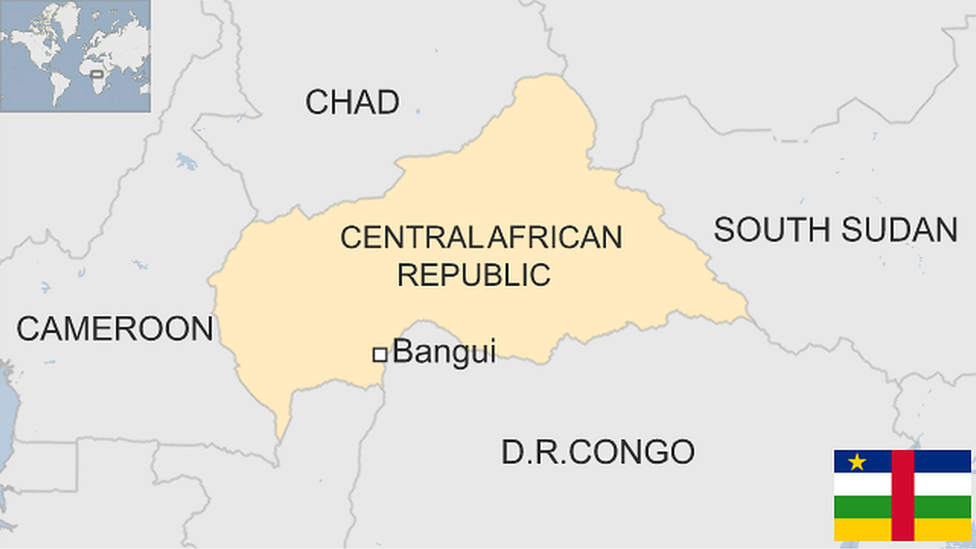CAR's ousted leader Bozize says Chad aided rebels
- Published
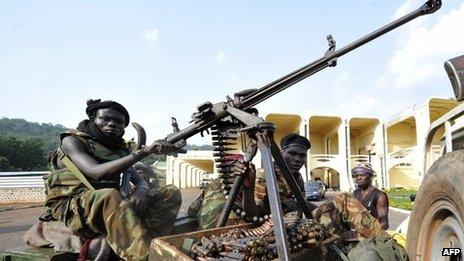
Seleka rebels seized power more than a week ago after a peace deal collapsed
The ousted president of the Central African Republic (CAR) has accused Chad of helping the rebels that toppled him.
Francois Bozize told the BBC it was "Chadian special forces" who led the final operation of last month's rebellion, including an attack on a base of South African troops.
Chad, which is hosting an emergency regional summit on CAR, has denied the allegations.
Mr Bozize said he had requested but was refused a seat at the meeting.
But South Africa's President Jacob Zuma is one of those attending the Economic Community of Central African States summit.
Thirteen South African soldiers were killed in the clashes in the capital, Bangui, when the Seleka rebel group seized power after a peace deal negotiated with Mr Bozize collapsed.
The incident has caused controversy in South Africa. The governing ANC party has rejected accusations that the troops were there because of mining interests.
South Africa's government says they were training government forces and providing security.
'Surprise'
"On Saturday March 23 we had neutralised Seleka forces but overnight into Sunday 24, we knew that there had been support from an African country, which I inevitably believe was Chad," Mr Bozize, who fled to Cameroon after the rebellion, told the BBC French Service.
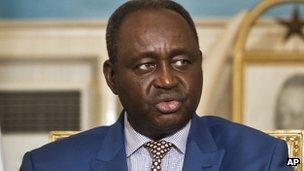
Francois Bozize seized power 10 years ago and won two subsequent elections
"We can confirm it was Chadian special forces that led the operation on the Sunday morning and attacked the barracks of the South Africans," he said.
Last week, Mr Zuma said the South African troops died in a nine-hour "high-tempo battle" against the "bandits" in Bangui.
Mr Bozize, who seized power in a coup in 2003 and won two subsequent elections, said he was surprised by Chad's move.
"To avoid a bloodshed I decided to resign after a phone call I made to the French ambassador," he said.
"We had a solid and friendship relation with the Chadian authorities. Chad alone can give an explanation."
But a senior official within Chad's foreign ministry, Moussa Dago, told the BBC later on Wednesday that the accusations were not true.
Louisa Lombard, a fellow at the University of California in Berkeley who specialises in the CAR, said relations between the neighbours had soured in recent months.
Up until last year, Chad's President Idriss Deby provided Mr Bozize with his personal guards, she said.
"One of the things that really frustrated President Deby was the presence of a Chadian rebel group on Central African territory and Deby's sense that Bozize didn't do enough to deal with this group," Ms Lombard told the BBC's Newsday programme.
"Another thing was probably that President Bozize was starting to pursue alliances with other countries, notably South Africa - and that this was seen a compromising somewhat his relationship with Deby," she said.
Michel Djotodia, the rebel leader who has declared himself president, is sending his Prime Minister Nicolas Tiangaye to the summit in Chad's capital, N'Djamena.
Mr Djotodia announced a caretaker government on Sunday and says he will run the country until elections in 2016.
- Published2 April 2013
- Published25 March 2013
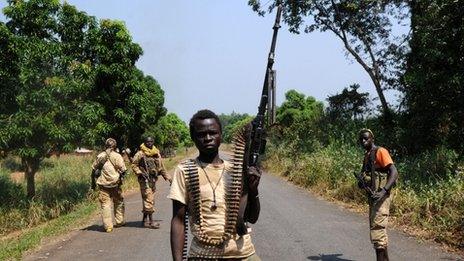
- Published11 January 2014
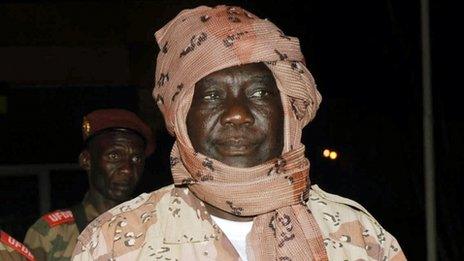
- Published12 January 2013
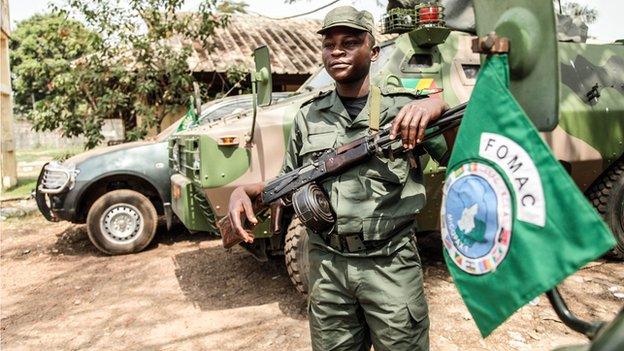
- Published22 August 2023
